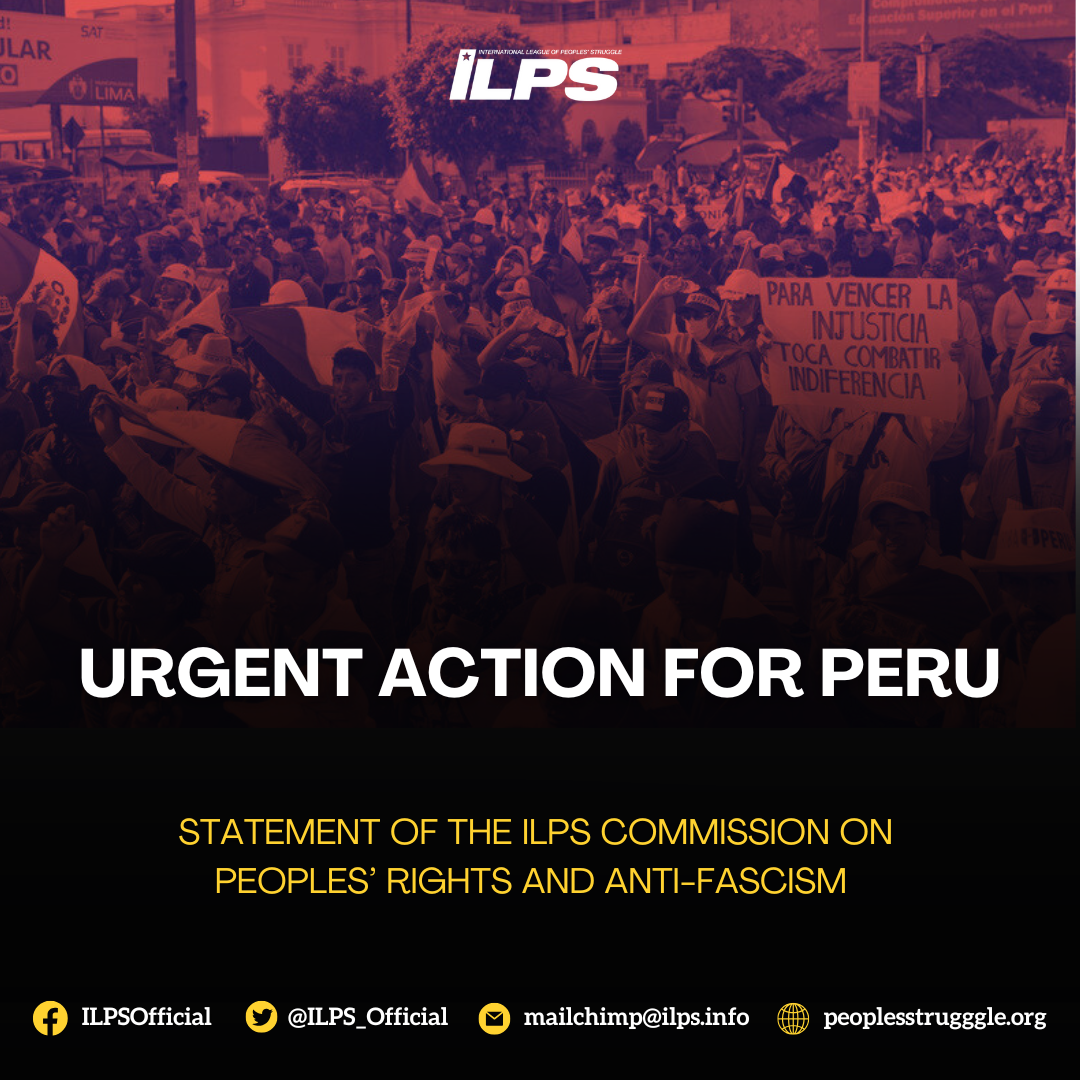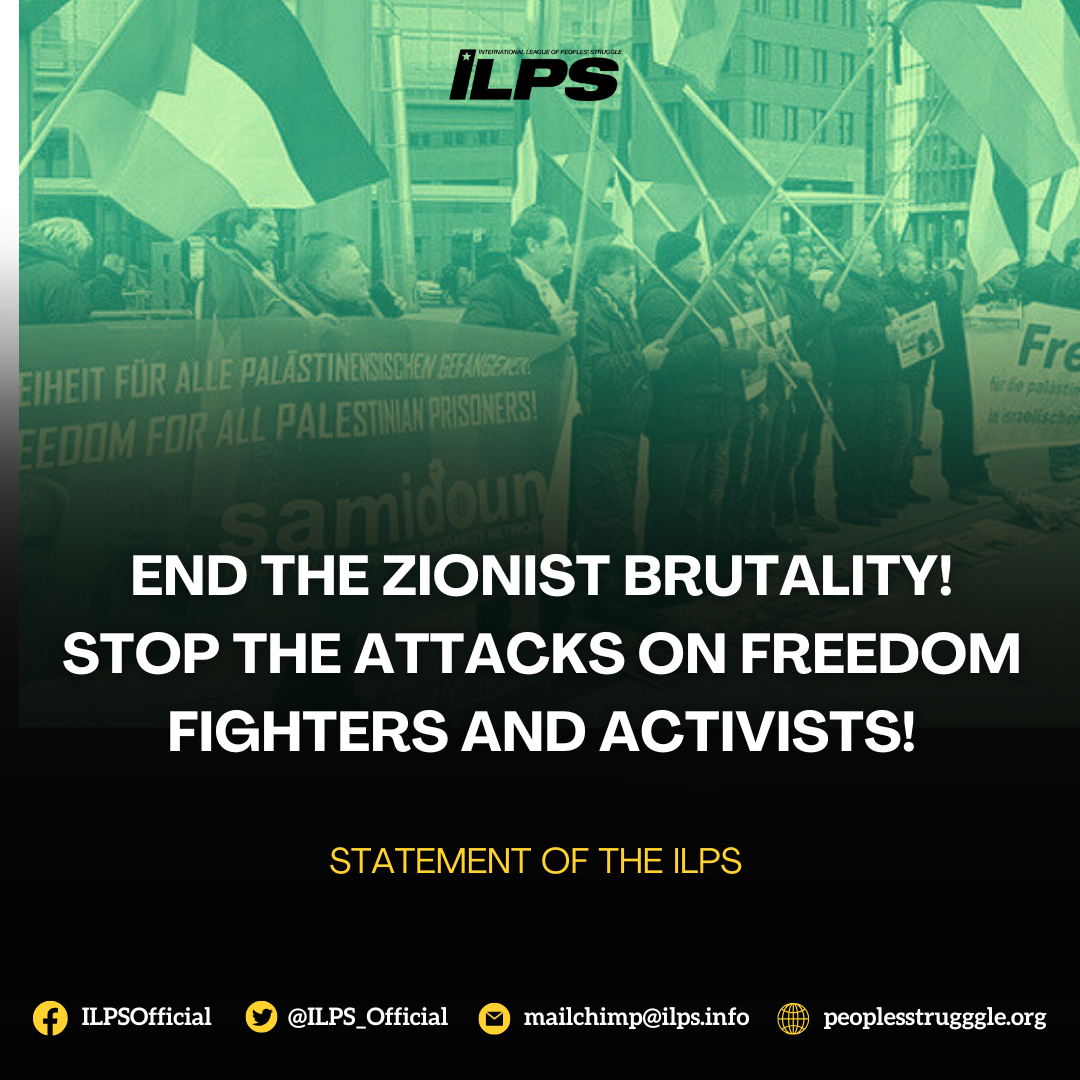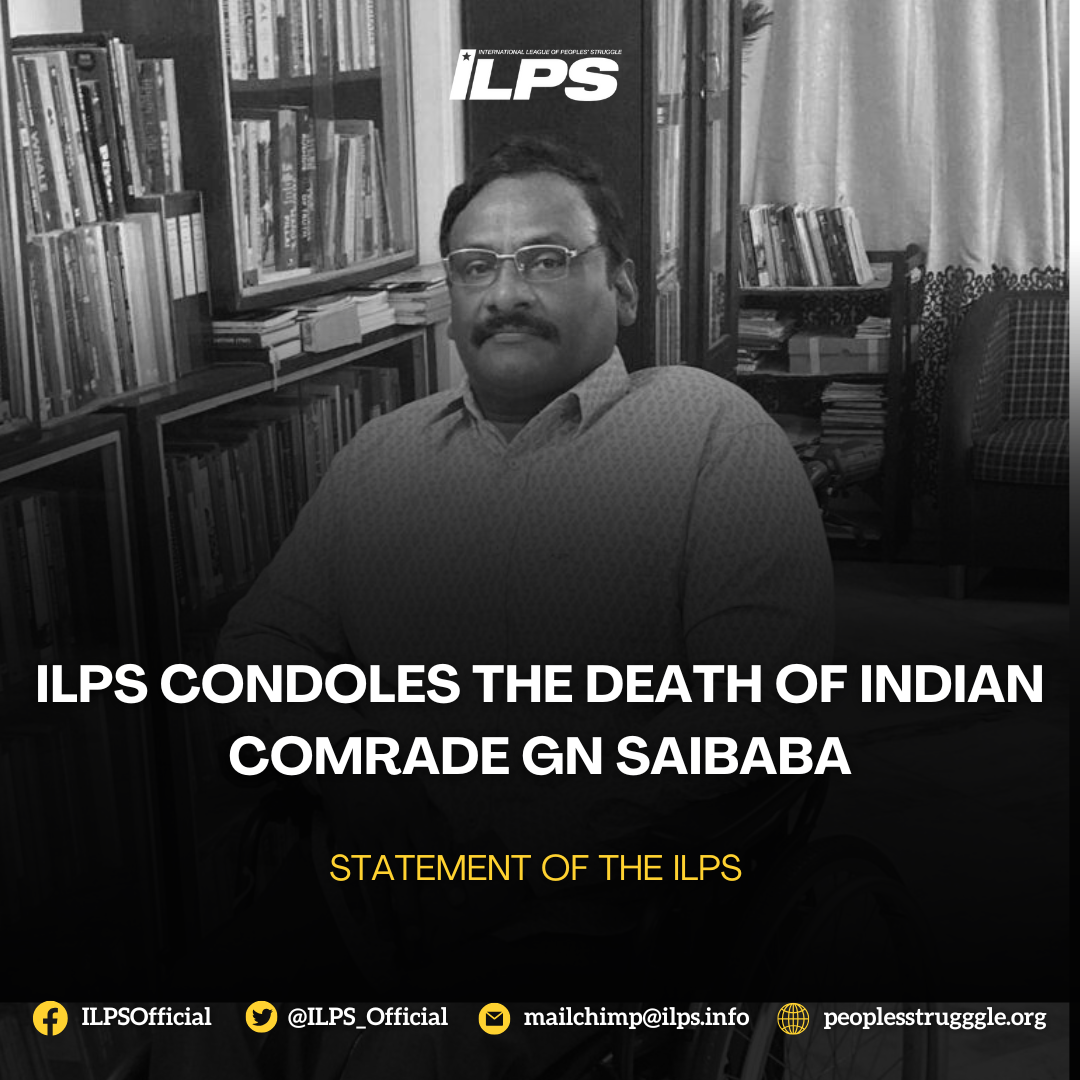The International League of Peoples’ Struggle-Philippines strongly condemns the militarist response of President Rodrigo Duterte as a measure for containing COVID-19. The government has imposed curfews, stationed armed forces to set up checkpoints within the National Capital Region (NCR), in the boundaries of the NCR and throughout the country to enforce Duterte’s containment policy of “ enhanced community quarantine” without clear and adequate provision for public health services and infrastructure, means of subsistence and relief for the poor who are most affected by the health crisis.
Instead of strengthening the public health sector, Duterte has called on the AFP and PNP to manage the COVID-19 crisis. While social distancing and self-quarantine are necessary for prevention, a well-structured public health system is crucial if the country is to survive the pandemic. Senators have raised alarm over the scant number of testing kits procured by the Department of Health. The initial testing kits procured were good for a mere 2,000 individuals out of the country’s population of 100 million. The Philippine General Hospital has been raising funds and relying on donations for personal protective equipment. While the government has allocated P27.1 billion for the COVID-19 emergency, P14 billion is for the Tourism industry while a mere P3.1 billion is for stemming the spread of the disease, including the acquisition of test kits.
The first day of the Duterte regime’s ‘community quarantine’ has proven the inadequacy of its implementation — those manning checkpoints were ill-equipped with medical tools which resulted in congestion of motorists who lined up en masse and in close quarters. Commuters struggled to get to and from work. Upon the announcement of a lockdown, people have been panic-buying and hoarding supplies and groceries. Such instances demonstrate that Filipinos are worried not only about inaccessible healthcare, but also of the economic impact of the COVID-19 crisis on our daily lives.
Those working in informal sectors such as street vendors have no alternative source of income. Families struggling to make ends meet cannot afford to miss work, and not all employees have the privilege of telecommuting or remote work such as production lines in factories and construction jobs which require the physical presence of workers. Workers residing outside Metro Manila cannot afford the luxury of renting a home within the metro as suggested by DTI Secretary Ramon Lopez. Economic relief for the marginalized, the bloodline of the city and the producers of its profit and capital, is a must.
The administration’s slipshod handling of the coronavirus outbreak has exacerbated public anxiety, exemplifying why Filipinos have no confidence in bureaucrat capitalists running the government. More than 12 million Filipinos continue to live under P132 a day and are deprived of basic social services. With the reduction of P10 billion in the health sector’s budget this year, the Department of Finance is now mulling over additional loans from the IMF-World Bank and the Asian Development Bank for stemming the pandemic.
The economic crisis of the world’s bankrupt capitalist system has thrusted neoliberal policies forward, such as the privatization of basic social services and disaster capitalism. Multinational and transnational corporations are biding their time to exploit the economic slowdown brought about by the COVID-19 pandemic to lobby for tax cuts and bailouts.
In a neo-colony such as the Philippines, a government subservient to imperialist interests guarantees the smooth enactment of such neoliberal policies. On March 10, 2020, in the midst of the coronavirus outbreak, the House of Representatives approved House Bill 78 allowing 100% full foreign ownership on power, transportation and communication services.
The coronavirus pandemic underscores the crisis of Philippine society. The semi-colonial, semi-feudal conditions of Philippine society cements the reliance of our country to imperialist nations in terms of economy and politics, and hinders the development of national industries such as pharmaceutical and medical technology which would have better prepared the country in dealing with COVID-19.
Healthcare and economic relief must take precedence over militarization. Marginalized and low-income communities in cities are densest and most vulnerable to disease, with little or no access to healthcare facilities and services. The government must shift its focus especially to urban poor communities in order to prevent further contamination of the population. Transport services and necessary equipment must be provided to healthcare workers in the frontline. Economic safety nets must also be in place for workers who will not be able to work due to home quarantine and restrictions on travel.
The ILPS-Philippines calls on the Filipino people to unite in asserting our basic rights to social services. We demand free mass testing and access to quality public healthcare for all Filipinos, and immediate economic relief for marginalized sectors.
Health care solutions, not militarization and tyranny!
Bong Labog – ILPS Philippines



